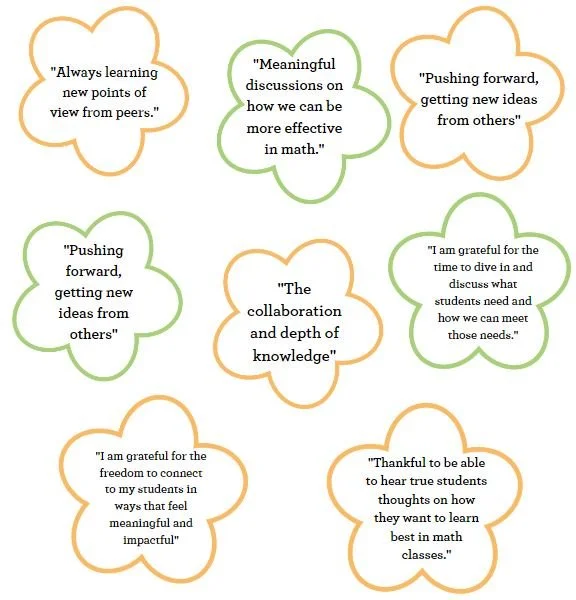Spring NIC Update
Where We’ve Been
Schools completed PDSA cycle 2, implementing and measuring instructional strategies focused on fostering a culture of risk-taking, strategically facilitating academic discussions, and creating a community of feedback in the classroom.
Schools completed the 'DO' and 'STUDY' portions of their journals, reflecting on implementation.
The network collected data from students through surveys, exit tickets, empathy interviews, and observations to better understand what is working, for whom, and under what conditions.
On April 3rd all the schools in the network gathered at George Washington High School to discuss their implementation processes during cycle 2 and begin to think about adaptions for cycle 3. Click here to view the full participant agenda and materials.
Where We’re Going
School design teams are in the process of finalizing their plans for cycle 3.
PDSA cycle 3 will run from April 4 - May 5.
Some design teams may engage in a 4th testing cycle before the end of the school year.
Network facilitation leads will meet on May 3rd to reflect on what they have learned about leading this work.
Our final network meeting for the 2022-2023 school year will be on June 5th.
We are currently soliciting participation from schools to be part of the CRoT NIC for the 2023-2024 school year.
What We’re Learning
Student-to-Student Feedback:
There are no gaps between the student population and Black and Latinx students in regard to comfortability with giving and receiving feedback.
There is approximately a 10% gap between the comfortability in giving and receiving feedback between MLL students and the student population.
Learning from Mistakes:
During cycle 2, 92% of students surveyed responded that correcting mistakes is helping the student improve in math, with 91% of students also believing that identifying and correcting mistakes is valuable.
MLL and Latinx students responded similarly to the student population for all multiple-choice questions asked.
The data indicates there is a small difference in the positive responses from the student population and Black students, with the greatest difference (12%) reflected among the responses to "Identifying and correcting mistakes is helping me improve in math."
Decide & Defend and Strong/Clearer:
MLL students responded more positively than the student population to all questions asked, specifically that the activity is building confidence to identify and correct mistakes in math (77% positive response compared to 64% positive for the student population).
Carousel:
The Carousel group collected observational data using a scale to track the frequency with which students were engaging with other students, using academic vocabulary and keeping the group on task.
*These findings are not generalizable to all DPS students. They are representative only of the students in classes taught by CRoT participants and are meant to help those teachers understand how their students are experiencing the change ideas the network is testing.
Garden of Gratitude
During our 'Optimistic Closure' at our April meeting we asked participants to plant something in the CRoT Garden of Gratitude. What are you feeling grateful for?



